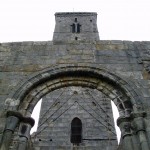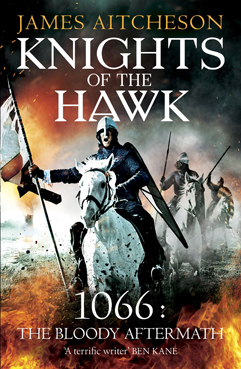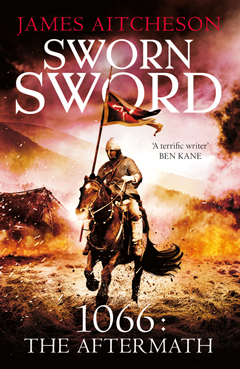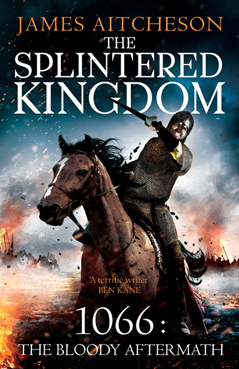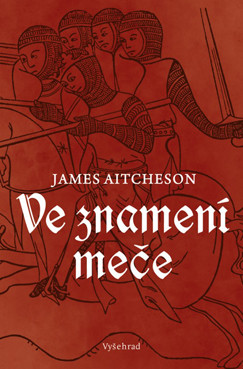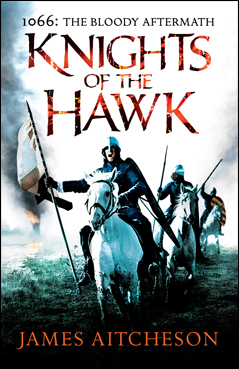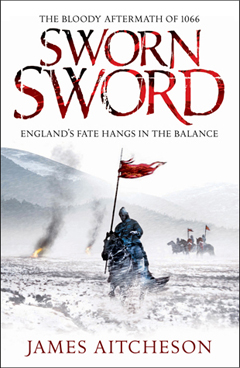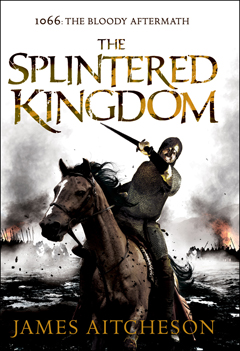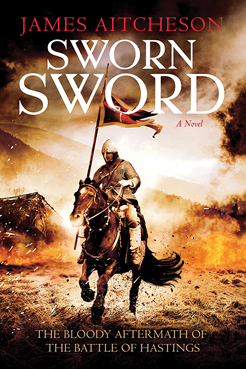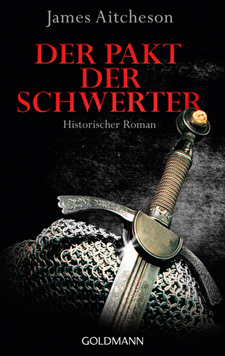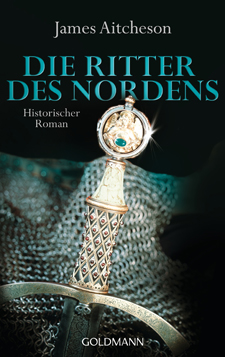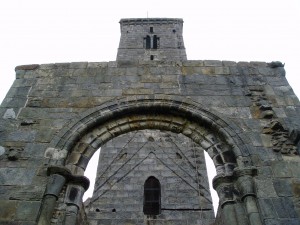
The 12th-century tower of St Rule (St Regulus), in the grounds of St Andrews Cathedral.
While many of these and other dramatisations dress themselves in the lavish costumes, scene-dressing and CGI that are the hallmarks of the so-called “sexy historical”, the content is often much less glamorous. The main focus of the discussion revolved around the prevalence and degrees of vice, debauchery and violence (including sexual violence) depicted in these programmes, their portrayal of women, and the ways in which they make use of the commonly held belief that the Middle Ages were a period in which life was “nasty, brutish and short”.
Clearly this is a very skewed and limited vision of the period, and yet it seems to be one that the US-based cable networks such as HBO, Showtime and Starz, who commission and in large part fund these series, have hit upon as a means of drawing in viewers. A similar formula can also be found in the treatments afforded to The Tudors and The Borgias. Why is it that this recipe has recently found success, and should we be concerned that the Middle Ages are getting such a bad press?
It should be noted that this new brand of “dirty medievalism” is, by and large, the preserve of the cable channels. Indeed in the UK, the BBC’s dramatic uses of the Middle Ages have tended to be oriented more towards family entertainment, with series such as Merlin and Robin Hood offering a very different depiction of medieval life: one that is gentler and interspersed with humour. Which of the two approaches, if either, presents a better reflection of the medieval reality?
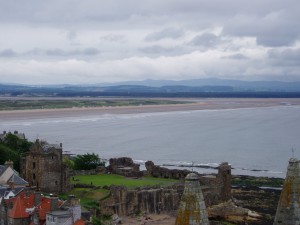
St Andrews Castle (foreground), with West Sands Beach and the North Sea beyond.
Nevertheless, I’d hope that readers of my novels come away with the sense that kinship, duty and love did matter to medieval people, just as they matter to Tancred and his allies, and that there was honour to be found in their world. While treachery, backstabbing, power games and violence abounded, it seems strange to argue that these facets were peculiar to the Middle Ages, or that they were the main distinguishing features of that period. For that reason, as entertaining as these recent TV dramatisations are, there remains for some a nagging sense that, in limiting their vision, they do the Middle Ages a disservice.
Needless to say it was a fascinating discussion – one of many over the course of the conference. Even now, more than a week after coming back, I’m still working my way through and absorbing the various notes I made. I hope to share some more of my findings from my time in St Andrews in the not too distant future!
If you missed it last week, catch up with Part One of my report from “The Middle Ages in the Modern World”.

